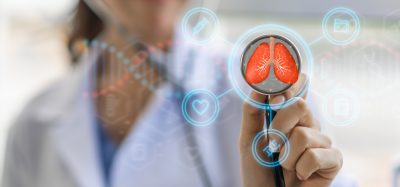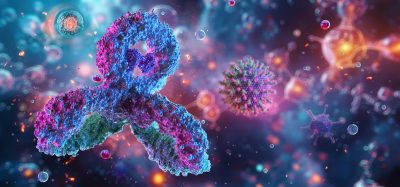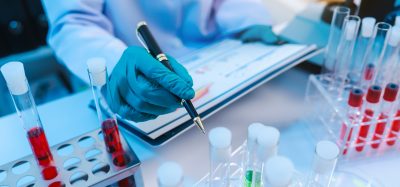Drug Discovery 2022: Driving the Next Life Science Revolution
Date: 4 October 2022 - 5 October 2022
Time: All Day
Location:
Excel London
Royal Victoria Dock, 1 Western Gateway
London
E16 1XL
United Kingdom
Website: bit.ly/3ewmMPZ
 Welcome to Drug Discovery 2022 ELRIG’s annual Drug Discovery meeting which remains Europe’s largest meeting for life sciences industry professionals. During this conference, ELRIG will celebrate its long history of hosting disruptive and innovative drug discovery technology developments, whilst exploring the next life science revolutions.
Welcome to Drug Discovery 2022 ELRIG’s annual Drug Discovery meeting which remains Europe’s largest meeting for life sciences industry professionals. During this conference, ELRIG will celebrate its long history of hosting disruptive and innovative drug discovery technology developments, whilst exploring the next life science revolutions.
Since the pandemic, Drug Discovery and scientific achievements have reached into people’s lives in way not seen before. This has driven support for diverse and collaborative thinking to make unprecedented scientific progress. The ELRIG community are now facing an exciting prospect to help drive this renaissance in life sciences.
Drug Discovery 2022 promises to provide a platform for the whole drug discovery community to meet at a free to attend, in-person event. ELRIG has partnered with; BPS, SLAS, and RSC to draw together an exciting and progressive 2-day event containing; cutting-edge advancements in screening, automation and high content imaging, and innovations in disease models, advances in cell and gene therapies, revolutions through partnerships, future perspectives in medicinal and green chemistry and finally creative thinking to deliver therapies to one of the most challenging diseases facing society; COPD.
ELRIG committee invites you to attend this exciting meeting, and contribute to this revolution through, submission of (poster Abstracts) and round-table discussions throughout the 2-days – We look forward to your contribution!
Overcoming Challenges and New Directions in Medicinal Chemistry Even relatively recently, many key proteins and processes in human disease have been considered “undruggable”. However, recent advances against targets such as the RNA spliceosome and KRAS G12C have started to re-define the concept of druggability and how we can deliver forefront medicines across a range of diseases. In this session, we will celebrate some of the recent advances in this space, describing the impact of synthetic and medicinal chemistry in delivering agents against challenging diseases. Importantly, the talks will share key lessons learnt, to assist future success against equally challenging targets and our panel of experienced medicinal chemists will discuss their own experiences, future directions and upcoming challenges.
High Content Imaging in Drug Discovery High content imaging (HCI) is now a familiar and in many cases, a routine approach for investigating and analysing the multiparametric events occurring within cells and is used as a standard tool in many academic and Pharma environments. HCI is increasingly being deployed in more technologically challenging environments such as organoid and 3D model systems as well as drawing on machine learning & AI advances to drive drug discovery efforts. With this session we assess the current standing of HCI in drug discovery by taking a snapshot of current and near-future activities in this arena; has the early promise of HCI been fully realised? Do we get the most benefit from our hard won HCI data? Is there such a thing as too much data? Is there an emerging consensus as to the best way to deploy HCI in DD?
Cell & Gene Therapy Often grouped together, these two complementary disciplines of therapy have not only delivered clinical impact through the efforts of academics and biotechs, they have also become pillars of many pharmaceutical companies medicine pipelines. With approaches as diverse as in vivo expressed biologics, CRISPR-based therapeutic gene editing and allogeneic immune cell engineering, it is easy to overlook the commonalities between this wide range of medicine formats. This session will provide an update on advances in this increasingly mainstream area of drug discovery, as well as shine a light on some of the shared challenges academics, clinicians and industry scientists are working together to overcome”.
Drug Discovery and Development in COPD (BPS) COPD remains a major medical challenge resulting from smoking and increasingly due to oxidant airborne pollutants. COPD is suggested to become the third leading cause of deathly globally by 2030 and currently affects approximately 17.4 million people. Furthermore, there is now a growing recognition that COPD is a syndrome with both changes in the respiratory system and systemic co-morbidities, particularly in the cardiovascular systems, and even depression. Current therapy is largely administered by inhalation to treat the respiratory symptoms, with drugs mainly developed not to enter the systemic circulation to avoid unwanted effects. However, in the future we need to consider systemic treatments to also address these important co-morbidities. This track will review the current “state of play” of our understanding of the pathogenesis of COPD and the current limitations of current treatment approaches. The track will discuss assays to identify novel molecular targets to help find new drugs for the treatment of COPD and the “Therapeutic Innovation” currently in the pipeline.
Innovation through partnership The landmark collaboration between Oxford University and AstraZeneca for the further development, large-scale manufacture and distribution of the COVID-19 vaccine candidate has demonstrated, globally, the power of partnership to deliver on medicines and to solve challenging unmet needs. ELRIG have created this session to celebrate the thriving Bioscience network of research and commercial partnerships and to highlight and discuss approaches for funding your ideas.
Frontiers of Chemistry applied to Drug Discovery (The RSC) Sustainability, innovation, new modalities, synthetic methodology, target validation; what impact do all of these have on drug discovery and how can we use the most recent advances to improve the medicines we make? In this track we will hear about recent advances in sustainable chemistry, new synthetic methodology and its impact on drug discovery. We explore the interface between chemistry and biology, and how we are pushing the boundaries of drug discovery today. This session is hosted by the Biological and Medicinal Chemistry Sector (BMCS) and RSC Medicinal Chemistry. The BMCS is a member-driven interest group of the Royal Society of Chemistry (RSC) which aims to further the interests of all members of the RSC, both industrial and academic, involved in the pursuit and understanding of biologically active molecules. A journal published on a not-for-profit basis by the RSC, RSC Medicinal Chemistry publishes significant research and new thinking in medicinal chemistry and drug discovery science.
Developments in Preclinical Models Driven by increased disease insight as well as a renaissance in screening approaches such as Functional Genomics, understanding biology, as well as the behaviour of emerging drug targets and candidate medicines within a complex cellular environment is critical to modern research. Academics and industry scientists are increasingly turning to advanced preclinical models in order to identify and validate new biological hypotheses, as well as mitigate the risks of clinical efficacy- and safety-based attrition for new medicines. This session will highlight some of the most exciting preclinical model systems at the forefront of this wave of innovation”.
Advancements in Screening and Automation (SLAS) In the ELRIG-SLAS joint session novel approaches to laboratory automation and screening will be shared. What does a lab of the future look like and how to get there? The speakers will give us an insight into their ideas, solutions, new technologies and share their experience. Making screening tools and automation more universal and easy to implement is and will be an important topic in the years to come.
Conference Directors:
- Simon Chell
- Simon Ward
- Katie Chapman
- Jon Hutchinson
Map
Related topics
Drug Discovery






